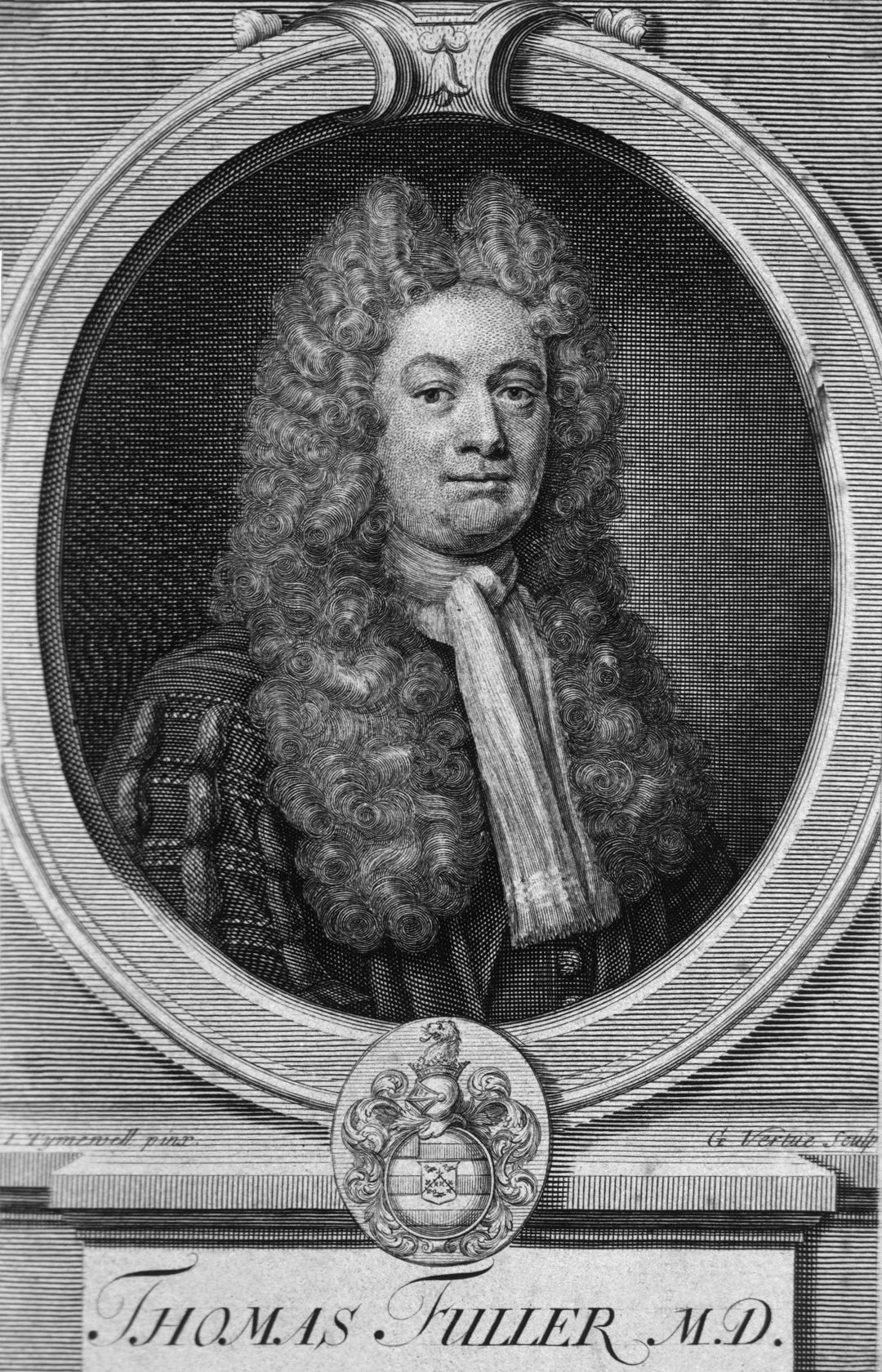Thomas E. Fuller citáty a výroky
Thomas E. Fuller: Citáty v angličtine
“5225. To seek a Needle in a Bottle of Hay.”
Introductio ad prudentiam: Part II (1727), Gnomologia (1732)
“620. An idle Person is the Devil's Playfellow.”
Introductio ad prudentiam: Part II (1727), Gnomologia (1732)
Varianta: 3054. Idle Fellows are the Devil's Playfellows.
“5499. What is the Use of Patience, if we cannot find it when we want it?”
Compare Poor Richard's Almanack (1747) : What signifies your Patience, if you can't find it when you want it.
Introductio ad prudentiam: Part II (1727), Gnomologia (1732)
“3314. Make Hay, while the Sun shines.”
Introductio ad prudentiam: Part II (1727), Gnomologia (1732)
“5335. Two things a Man should never be angry at; what he can help, and what he cannot help.”
Introductio ad prudentiam: Part II (1727), Gnomologia (1732)
“92. A Father is a Treasure, a Brother a Comfort; but a Friend is both.”
Compare Poor Richard's Almanack (1747) : A Father's a Treasure; a Brother's a Comfort; a Friend is both.
Introductio ad prudentiam: Part II (1727), Gnomologia (1732)
“5572. When the Cat's gone, the Mice grow sawcy.”
Introductio ad prudentiam: Part II (1727), Gnomologia (1732)
Varianta: 6131. When the Cat is away,
The Mice may play.
“3769. One may as much miss the Mark, by aiming too high, as too low.”
Introductio ad prudentiam: Part II (1727), Gnomologia (1732)
Excerpt from Introductio ad prudentiam: Part II, To the Reader (Prefatory Remarks).
Introductio ad prudentiam: Part II (1727)
“3881. Plants too often removed will not thrive.”
Compare Poor Richard's Almanack (1737) : I never saw an oft-transplanted tree, nor yet an oft-removed family, that throve so well as those that settled be.
Introductio ad prudentiam: Part II (1727), Gnomologia (1732)
“3685. Not to oversee Workmen, is to leave them your Purse open.”
Compare Poor Richard's Almanack (1751) : Not to oversee Workmen, is to leave them your Purse open.
Introductio ad prudentiam: Part II (1727), Gnomologia (1732)
“2445. He's a Slave, that cannot command himself.”
Introductio ad prudentiam: Part II (1727), Gnomologia (1732)
“4163. Silent Men, like still Waters, are deep and dangerous.”
Introductio ad prudentiam: Part II (1727), Gnomologia (1732)
“4706. The Pitcher, that goes often to the Well, comes home broken at last.”
Introductio ad prudentiam: Part II (1727), Gnomologia (1732)
“3736. One barking Dog, sets all the Street a barking.”
Introductio ad prudentiam: Part II (1727), Gnomologia (1732)
“1887. Think thyself happy if thou hast one true Friend; never think of finding another.”
Introductio ad prudentiam: Part II (1727)
“5733. Whosoever engages in many Pursuits, rarely suceeds in one.”
Introductio ad prudentiam: Part II (1727), Gnomologia (1732)
“4858. There are more old Drunkards, than old Physicians.”
Compare Poor Richard's Almanack (1736) : There's more old Drunkards than old Doctors.
Introductio ad prudentiam: Part II (1727), Gnomologia (1732)
“5414. Want of Care does us more Damage than want of Knowledge.”
Introductio ad prudentiam: Part II (1727), Gnomologia (1732)
“342. A Penny sav'd is Two-pence got.”
Compare Poor Richard's Almanack (1737) : A Penny sav'd is Twopence clear.
Introductio ad prudentiam: Part II (1727), Gnomologia (1732)
Introductio ad prudentiam: Part II (1727)
“1090. Cheat me in the Price, but not in the Goods.”
Introductio ad prudentiam: Part II (1727), Gnomologia (1732)
“5038. Three may keep Counsel, if two be away.”
Compare Poor Richard's Almanack (1735) : Three may keep a Secret, if two of them are dead.
Introductio ad prudentiam: Part II (1727), Gnomologia (1732)
“331. A Mouse in Time may shear a Cable asunder.”
Compare Poor Richard's Almanack (1735) : By diligence and patience, the mouse bit in two the cable.
Introductio ad prudentiam: Part II (1727), Gnomologia (1732)
“2788. If you sleep till Noon, you have no right to complain that the Days are short.”
Introductio ad prudentiam: Part II (1727), Gnomologia (1732)
“598. An empty Sack cannot stand upright.”
Compare Poor Richard's Almanack (1740) : An empty bag will not stand upright.
Introductio ad prudentiam: Part II (1727), Gnomologia (1732)
“4633. The longest Day must have an End.”
Introductio ad prudentiam: Part II (1727), Gnomologia (1732)
